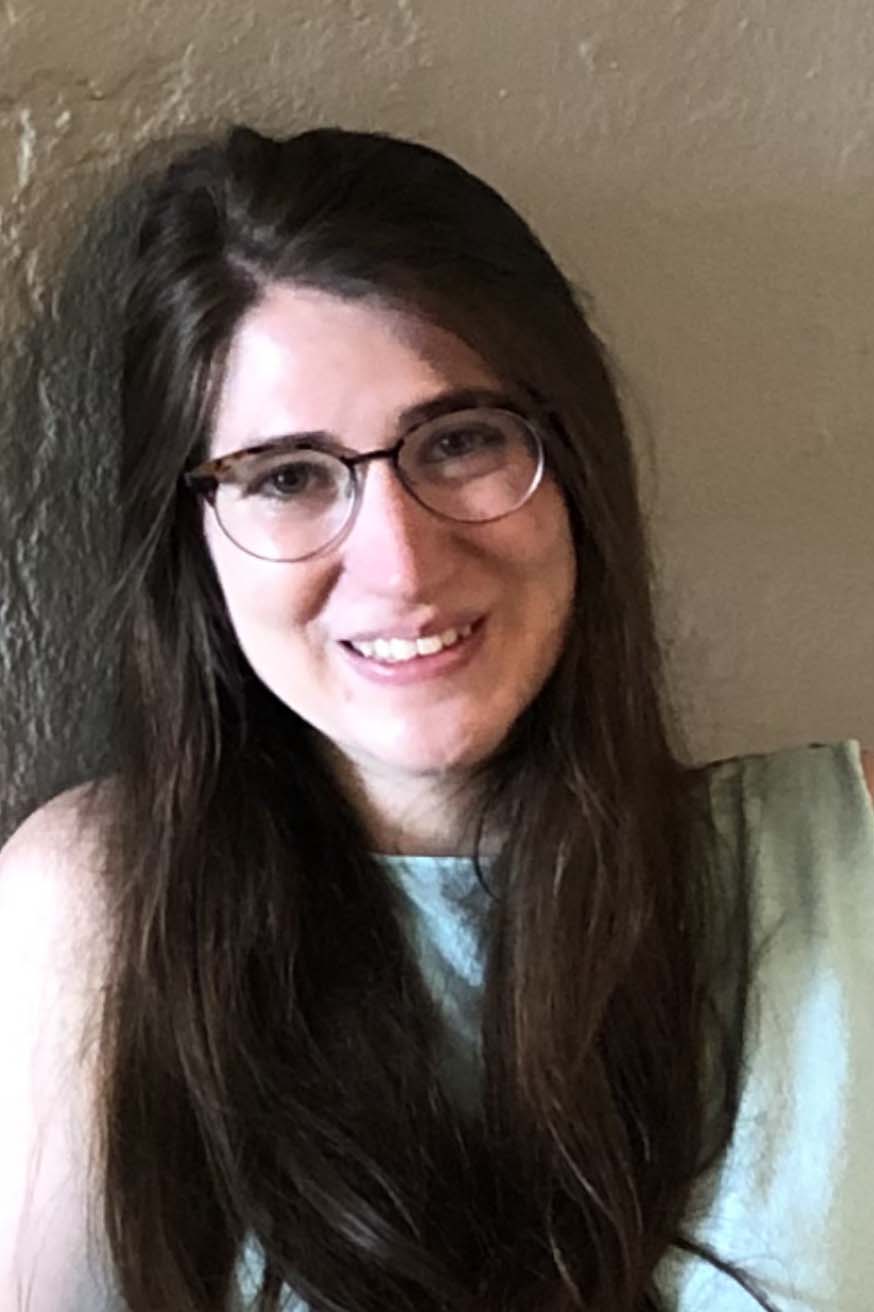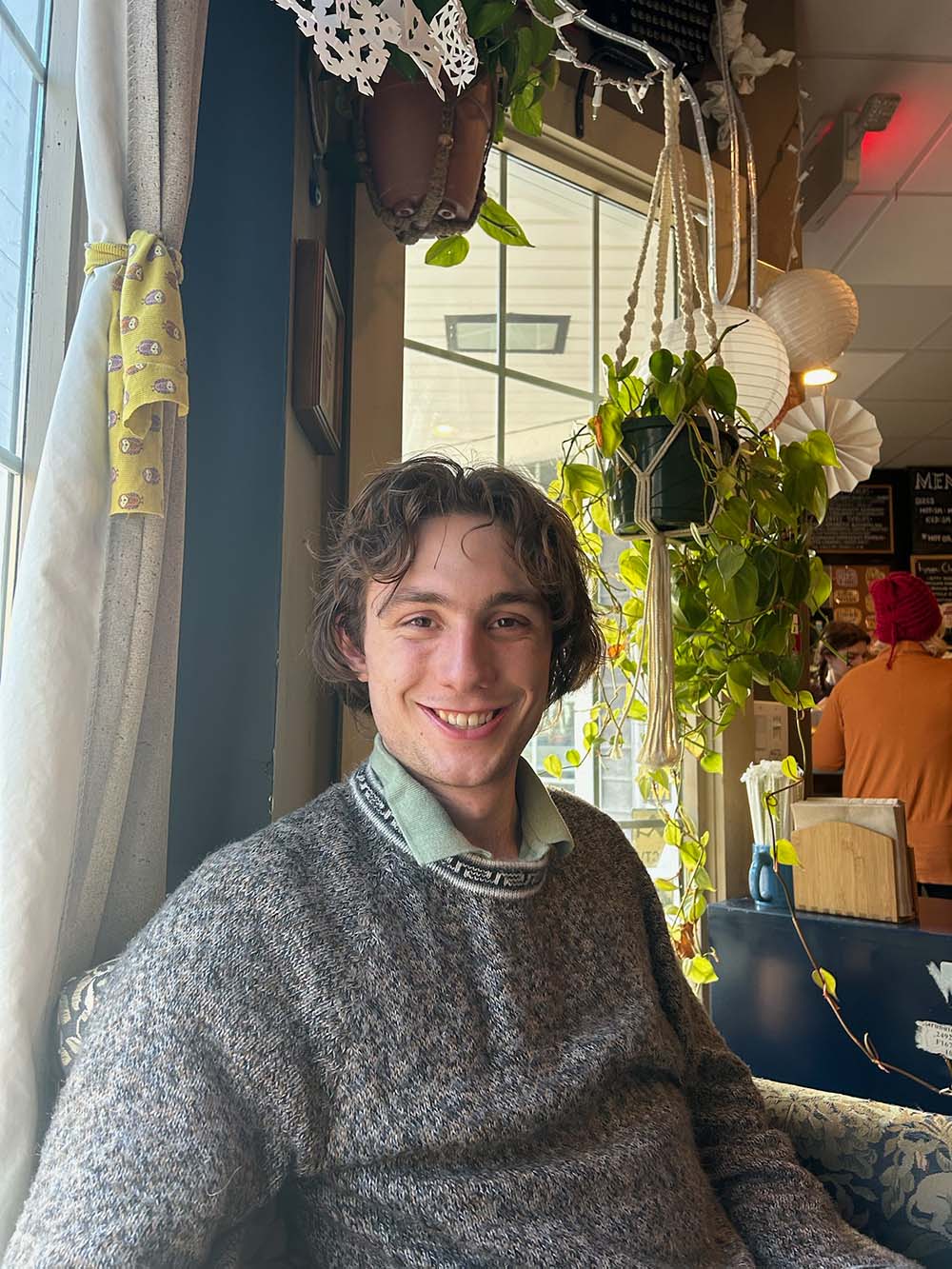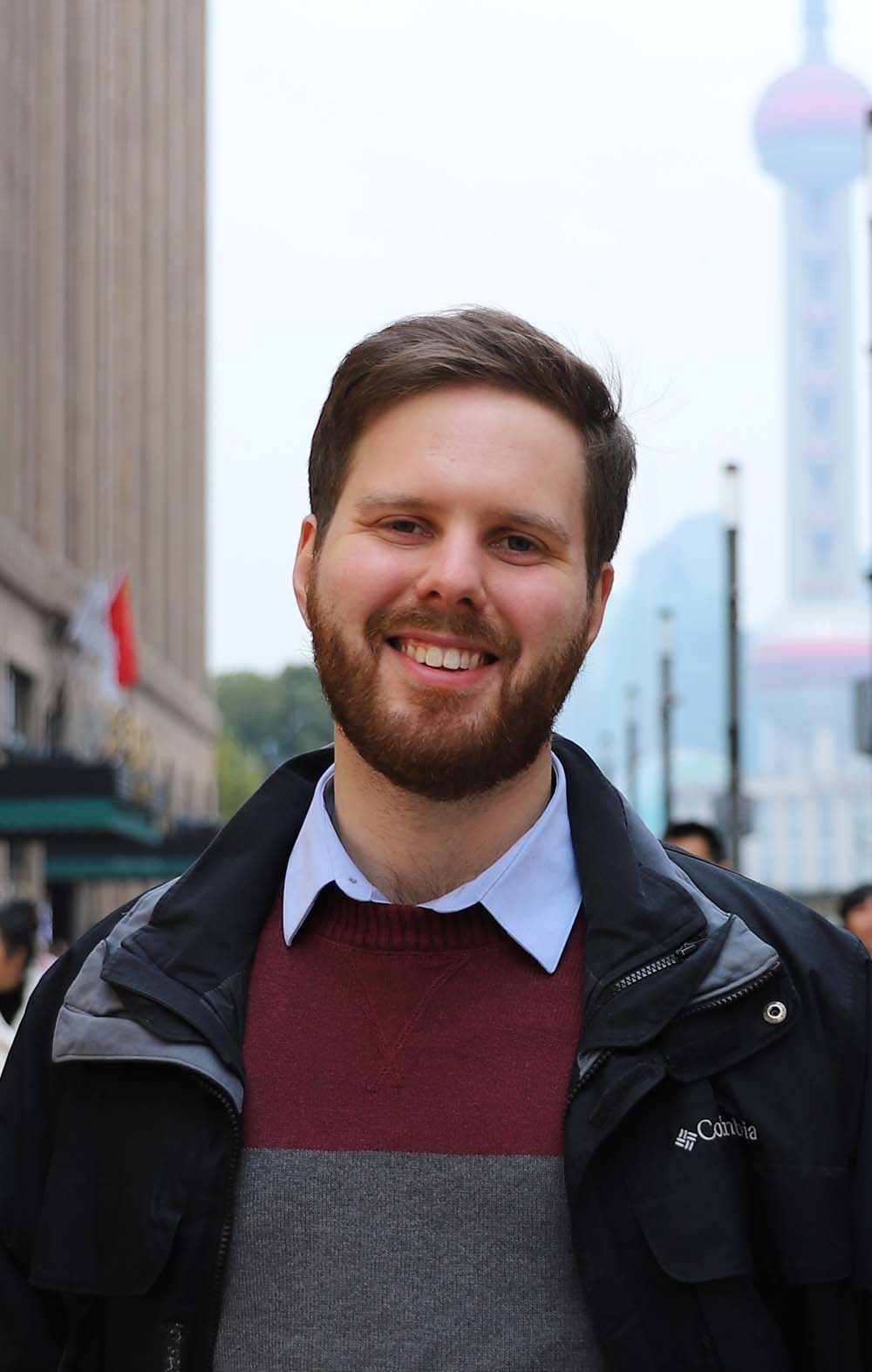Internships Help Graduate Students Plan Their Futures
October 15, 2025
Abigail Arnold
While a lot of learning takes place in the classroom or lab, those are far from the only places that graduate students can develop their skills. Internships are an important part of the graduate student experience, allowing students to use transferable skills and learn more about the career options available to them. We talked to three graduate students who had internships across fields in the past year to learn more about their experiences and what advice they would give to other students.
Tali Cohen, fourth-year PhD student in English, The Petrarch Project
Tali Cohen has been working with Petrarch in Global Translation, co-led by her advisor, Professor Ramie Targoff, and Judith Frömmer, of the University of Vienna, for two years. The project’s goal is to help people appreciate the Renaissance poet Petrarch’s legacies across time and space, and it brings together translators and scholars who work on his poems. Originally, Cohen’s main responsibility was to build an internal website for translators to post their drafts on and to message each other. With that completed, she’s now working with a web design team on creating a public-facing website for the project. “It’s been a great experience because I’ve never considered myself a technological person before, but I’m learning as I go,” she said. “There’s a whole world of backend and frontend design that I had never considered before.” Cohen is also helping with a journal that will be published by I Tatti, the Harvard University Center for Italian Renaissance Studies.
Cohen especially appreciates how her internship allows her to bring together her academic interests and professional skills. After taking a class with Targoff in her first semester that explored Petrarch’s reception in early modern England, Cohen’s primary focus of study became English Renaissance literature. “It’s hard to overstate Petrarch’s impact on the English literary canon – there are so many different ways in which writers have built upon and sometimes subverted his ideas about love,” she said. She also worked at a nonprofit prior to beginning her PhD and brings that experience to her work here. “It’s been really rewarding to take some of the project management skills I learned there and apply them to an academic project. This internship is the perfect convergence of two career paths. I also really appreciate how this project is inherently interdisciplinary and brings together project management, technology, and literature.”
In this interdisciplinary setting, Cohen has relished the opportunity to work with a range of people. “It’s been really inspiring to see the intersection of literature and public digital humanities,” she said. “This is a project I don’t think I would have thought was possible before coming to Brandeis and seeing it. It unites scholars from five different continents over a single canon. It was really cool to work with the software and graphic design people who were excited to work on something literary. It shows how really, really interesting things can come together when people don’t lock themselves in silos. I think the key thing is to think collaboratively. Academia has a lonely reputation, and this project is truly stronger because so many people are coming together and sharing what they have to give. I know that cultivating a community and team of people will be a big part of my career, whatever it is.”
When asked for her advice for other students beginning internships, Cohen said, “Spreadsheets are your best friend! Writing everything down is crucial. It takes a lot more work to try to remember something than to write it down in an organized system.” She also encouraged students to be open to a range of opportunities. “Keep an open mind about what you might be interested in. I didn’t know anything about Petrarch before joining this project, but I am now studying his legacy in different traditions and countries. I don’t think that would have happened if I hadn’t worked with Ramie.”
Ben Lambright, fifth-year bachelor’s/master’s student in Computational Linguistics, Charles River Analytics
Ben Lambright found his internship at Charles River Analytics through the Computational Linguistics program’s Brandeis connections. He initially learned about the company through one of the program’s industry receptions, leading him to apply for an internship there. “I had a friend who had just graduated from the program who was an intern there and now works there full time – he put in a referral for them to further review me,” said Lambright. “The Brandeis connections helped me stand out.”
In his internship, Lambright worked on a range of projects involving AI applications, including automatic speech recognition and training robots to respond to human commands. He credited the coding skills he learned in his on-campus research job in Professor James Pustejovsky’s lab with helping him to “hit the ground running” as an intern, while also learning from varied applications of the skills. “Because it’s a research company, there are several projects going on at a time,” he said. “I was involved with six at most, but being exposed to them all was really useful for me to learn so much more, and it’s nice to not be doing the same thing every single day.” He also praised the company’s friendly culture. “There was a lot of Brandeis representation for a small business,” he added. “I would usually see three Brandeis alums at the weekly happy hours.”
Through his internship, Lambright was able to make use of existing skills and learn how to use them in new contexts. “It’s always helpful to remember that in a real work setting, the amount of time something takes is typically a lot longer than a homework project,” he said. “It was good to see how everything outside of a semesterly world goes slower. It helped with my time management skills and also my ability to understand the scale of projects. The internship also reinforced the AI skills I’ve been learning at Brandeis and motivated me to continue to enjoy research and feel excited about the field, especially since AI is so fast-moving.” The experience also gave Lambright a sense of his future career goals. “It gave me a better idea of the kind of environment I want to work in,” he said. “The experience and connections will help me find a similar job after I graduate.”
Lambright offered advice to other students on both finding and succeeding in internships. “Applying online is kind of a numbers game, so what helped me here was that I had several friends who either worked there or knew people who did,” he said. “When reaching out to people, it helps if they know that you are succeeding in your program.” Once at an internship, Lambright said, “it’s important to balance doing a good job with the work and making an effort to get to know coworkers and have thoughtful conversations with them. Sometimes that can lead to the next opportunity.”
Joshua Perlmutter, fifth-year PhD student in Mathematics, a wealth management firm based in Waltham
Joshua Perlmutter spent ten weeks in the summer interning with a wealth management firm based in Waltham. He rotated between the planning, investment, and high net worth teams, getting to see different aspects of the company and learn more about the different pieces of finance and wealth management. While he did not have previous experience in the field, he knew he wanted to learn more about it and found the internship through searching online for finance internships in the Boston area.
While his specific research wasn’t immediately applicable to the internship work, Perlmutter found that many of the skills from his PhD program did translate. “The ability to do complex math problems and knowing a bit of coding helped with the more mathematical projects. I felt well-versed in the calculation,” he said. “As part of the PhD, I also read through a lot of research papers to gather and synthesize data, which was helpful for doing research with the planning team within the internship – turning a lot of information into a neat presentation for colleagues and supervisors. I’m also happy to have done a lot of teaching as part of the program, which refined my ability to explain complex things and turn them into a nice neat presentation others can use in the future.” His experience in the Three Minute Thesis competition, which he won in 2025, also helped with presenting his work.
Perlmutter greatly enjoyed his time at the internship and now hopes to work in the field following graduation. “I really enjoyed the environment. The company itself was a wonderful place to work,” he said. “Since a lot of math people go to work in finance, before I graduated I wanted to get an internship to get experience and see if I liked it. And, in the end, I found I really did enjoy it. That is one of the most valuable things I took from it: that I can definitely see myself continuing in wealth management or finance more broadly.” The in-depth experience of an internship allowed Perlmutter to explore and begin to understand the nuances of the field. “I was familiar with the stock market to a small extent, but getting to see the philosophy on investing, how we understand trends in the stock market, and what different complex financial lives look like was a great way to introduce myself to the whole field and to do it hands-on and jump in head first. Really being in the thick of things was very valuable compared to just reading about it.”
Perlmutter advised other students to actively pursue internship opportunities as a way of broadening their horizons. “It really is a numbers game, so send lots of applications,” he said. “I do recommend speaking with the Professional Development Team as well. They helped me refine the resume and practice for interviews, which was super valuable. If you are nearing the end of the PhD and not totally set on going into academia, try to do an internship to find out if an industry is for you. My internship was ten weeks, so if I had hated it, it would have been done quickly. But in my case, I really liked it, and I now have more focus and a better idea of what I enjoy and want to do.”






